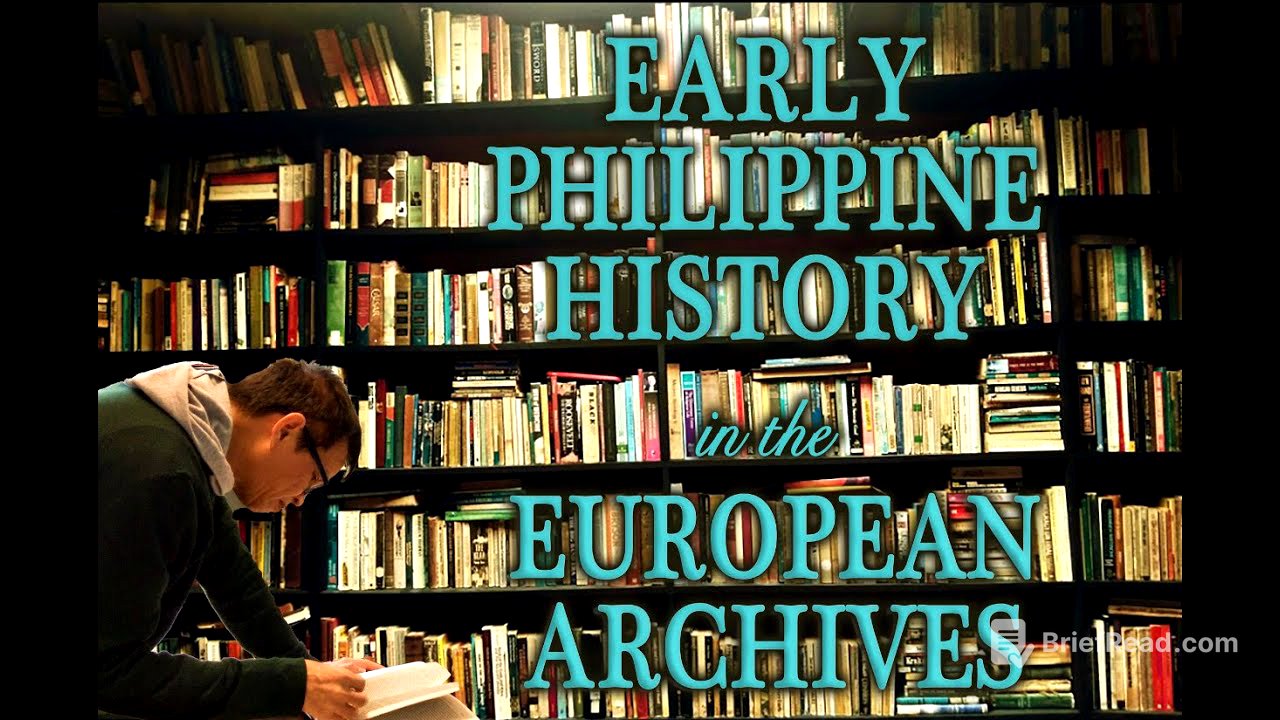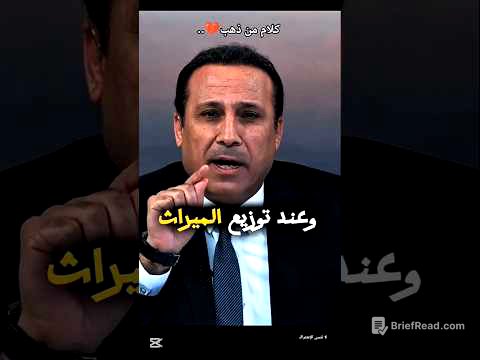TLDR;
This video provides a guide to European archives for researchers of early Philippine colonial history. It highlights key archives in Spain, Portugal, and Italy, detailing their collections and relevance to understanding the Spanish presence in the Philippines from various European perspectives.
- Spanish archives, particularly in Seville and Madrid, hold extensive documentation on the early Spanish empire, including the Philippines.
- Portuguese archives in Lisbon offer insights into the Magellan expedition and early Spanish activities from a Portuguese viewpoint.
- Italian archives in Milan contain original manuscripts and perspectives from Italian explorers like Antonio Pigafetta.
Introduction [0:00]
The video introduces the importance of archives as repositories of historical information, quoting Thomas Jefferson on the need to preserve historical records through duplication to safeguard against loss. It classifies archives into state and religious categories, setting the stage for a tour of significant European archives containing information on the Philippines.
Spanish Archives [0:41]
The Archivo General de Indias in Seville is highlighted as a crucial resource for information on the early Spanish empire, with a substantial collection of documents related to the Philippines. These documents cover topics such as the Magellan expedition, the encomienda system, reports from conquistadores, early missions, and the establishment of the first dioceses in the Philippines up to the early 19th century. The speaker recalls consulting documents from various religious orders and those related to the Magellan expedition during visits to this archive in the early 2000s. Other important archives in Spain include the Biblioteca Nacional de España in Madrid, which contains numerous manuscripts pertaining to the early Philippines, and the Museo Naval, which houses the archives of the Spanish Navy with significant documents on the Philippines, including early expeditions like Magellan's. The Museo Naval contains copies made by Martín Fernández de Navarrete, a collector of documents on the Philippines, including those related to the Loaisa expedition and Miguel López de Legazpi's 1565 expedition. The Real Academia de la Historia is also mentioned as a repository of early documents on the Philippines, containing materials on the 17th-century Philippines, including reports of volcanic eruptions and religious orders. Lastly, the Archivo Histórico Militar focuses on military history in both Spain and the Philippines, holding materials related to the Katipunan and José Rizal, as well as the early Spanish presence in the Philippines.
Religious Archives in Spain [5:17]
The Archivo Franciscano Ibero-Oriental (AFIO) in Madrid is noted for its extensive materials on the Franciscan missions, particularly in Southern Luzon, given the Franciscans' arrival in the Philippines in 1578. The Archivo de los Padres Agustinos in Valladolid contains documents from the early period of the Augustinian missions in Cebu, Visayas, and Southern Luzon, as the Augustinians were the first missionaries in the Philippines.
Portuguese Archives [6:50]
The Torre do Tombo archive in Lisbon is presented as another valuable resource for historians of the Philippines. It holds materials related to the Magellan expedition and Portuguese expeditions in Southeast Asia. While some documents have proven useful, the archivist mentioned that a significant portion, possibly over 10 kilometers worth, remains uncatalogued, presenting opportunities for historians to discover new information about the early Spanish presence in the Philippines from a Portuguese perspective.
Italian Archives [8:33]
The Biblioteca Ambrosiana in Milan, Italy, is highlighted for housing the original Italian manuscript of Antonio Pigafetta's account. This archive is valuable for research on the early Spanish expeditions in the Philippines from the viewpoint of Italian explorers like Pigafetta.
Conclusion [9:36]
The video concludes by expressing hope that the information provided will be useful for those researching the early colonial period in the Philippines using European archives. Viewers are invited to post questions in the comments section for future episodes.






![The Shadow of Hate: A History of Intolerance in America (1995) [HIGH QUALITY]](https://wm-img.halpindev.com/p-briefread_c-10_b-10/urlb/aHR0cDovL2ltZy55b3V0dWJlLmNvbS92aS83bnlGLUNlSDVzSS9ocWRlZmF1bHQuanBn.jpg)


